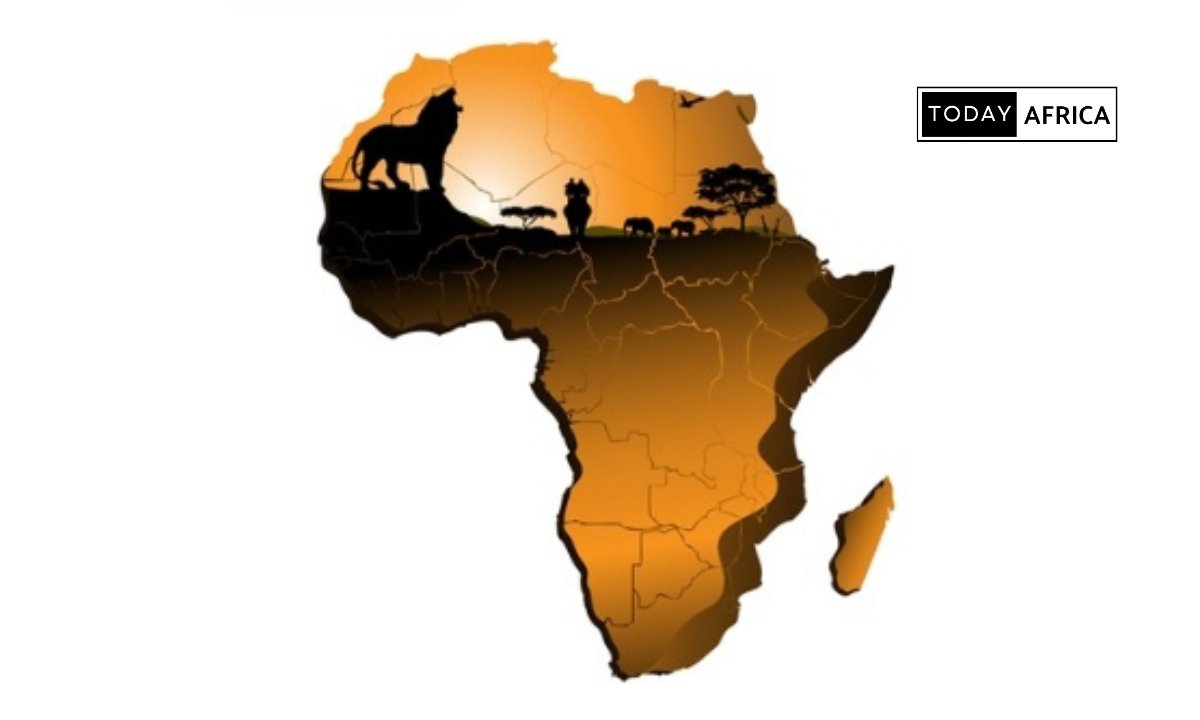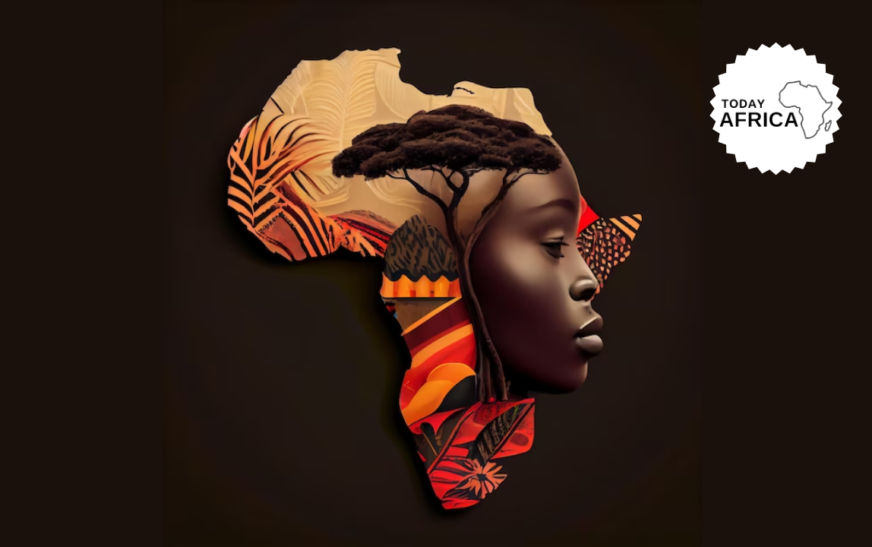The COVID-19 pandemic transformed how we work, opening up more opportunities for freelancing in Africa.
It’s no longer just a dream.
For thousands of Africans, freelancing has become a pathway to financial independence and global opportunity.
From graphic designers and web developers to virtual assistants and copywriters, African freelancers are tapping into a $1.5 trillion global gig economy.
With a youthful, tech-savvy population, rising internet penetration, and fintech innovations breaking down barriers, the continent is stepping into the spotlight as a hub for world-class freelance talent.
So if you’re wondering how to start freelancing in Africa—or if it’s even possible—this article will give you the roadmap.
You’ll discover how to overcome common obstacles and what steps you can take to build a sustainable freelance career that connects you to clients worldwide.
Africa’s Freelance Revolution: A Snapshot
Freelancing is no longer a side hustle or fallback plan for millions of Africans—it’s becoming a primary career path and a vital part of the continent’s economic engine.
Over the last decade, Africa has witnessed an unprecedented surge in freelance activity, making it one of the fastest-growing regions in the global gig economy.
According to Payoneer’s Global Gig Economy Index, African freelancers experienced earnings growth of over 36% in recent years, outpacing Asia (25%), Europe (21%), and Latin America (17%). This impressive trajectory places Africa at the forefront of the global freelance revolution.
But what’s driving this explosive growth? Read on to know more.
1. A youthful population hungry for opportunities
Africa is home to the youngest population in the world, with more than 60% of its people under the age of 25, according to the United Nations.
This demographic dividend presents a double-edged sword: while it promises a large, energetic workforce, traditional job markets across the continent cannot absorb the sheer number of young people entering employment age each year.
Youth unemployment rates remain high—estimated at 12.7% in Sub-Saharan Africa, with many countries reporting even higher figures. But rather than remain idle, African youths are turning to freelancing as a viable alternative.
Freelancing offers the flexibility to work for clients across borders, earn in stronger currencies like the dollar or euro, and build careers in industries such as:
- Web and app development
- Graphic and UI/UX design
- Digital marketing
- Content writing and translation
- Virtual assistance and administrative support
For example, in Nigeria, thousands of university graduates are using platforms like Upwork and Fiverr to build thriving businesses from their bedrooms, earning income comparable to traditional jobs—or even more.
Here is our interview with Milicent Ukachi, a Top-Rated Upwork Executive Virtual Assistant.
2. Digital technology adoption enabling remote work
A decade ago, limited access to the internet and digital tools kept many Africans out of the global freelance market. Today, that’s changing rapidly.
Internet penetration in Africa has grown from a mere 2.1% in 2005 to over 43% in 2024, according to Internet World Stats. This leap has been fueled by:
- Affordable smartphones: Over 650 million Africans now own smartphones, enabling access to freelance platforms and tools.
- Mobile money services: Innovations like M-Pesa in Kenya and Chipper Cash in West Africa make it easier to receive payments.
- Online learning platforms: Coursera, Udemy, and YouTube have made skill acquisition more accessible than ever.
These technological advancements mean that an aspiring freelancer in rural Uganda or Ethiopia can learn digital skills, set up an online portfolio, and land clients in London or New York without ever leaving their village.
3. Global companies outsourcing work to cost-effective regions
As companies worldwide seek to cut costs and access flexible talent, Africa is becoming an attractive outsourcing destination.
In the past, India and the Philippines dominated the outsourcing market. But rising costs in those regions have led global businesses to explore Africa’s untapped talent pool.
Why Africa?
- Cost-competitive rates: African freelancers typically charge lower fees than their Western counterparts while delivering high-quality work.
- Time zone advantage: Africa’s time zones overlap well with Europe and partially with the Americas, facilitating real-time collaboration.
- English and French proficiency: Countries like Nigeria, Kenya, Ghana, and Cameroon offer multilingual freelancers comfortable with global business languages.
As a result, African freelancers are now contributing to projects in industries as diverse as fintech, e-commerce, healthcare, and education.
See Also: Movie Review: ‘To Kill a Monkey’
4. Freelance platforms breaking down geographical barriers
Platforms like Upwork, Fiverr, Freelancer.com, and Toptal have democratized access to international clients. An African graphic designer can pitch to a startup in Berlin, while a Kenyan virtual assistant can manage calendars for an entrepreneur in Toronto.
At the same time, Africa-specific platforms are emerging to cater to local needs:
- Afriwork: A growing marketplace connecting African freelancers with global SMEs.
- Gebeya: Focused on highly skilled tech professionals like software developers and data scientists.
- AfriBlocks: A Pan-African network helping freelancers showcase their skills to international clients.
- TERAWORK: Tailored for Nigerian freelancers, with payment systems optimized for local banking challenges.
These platforms are not only creating opportunities but also solving Africa-specific problems such as delayed payments, internet instability, and lack of client trust.
Read Also: How to Start a Freelance Business in Africa (Step-by-Step Guide)
Why Africa is the Big Hub for Freelancers
Africa is positioning itself as a global center for freelance work, driven by a combination of demographic, technological, and economic factors.
As businesses worldwide embrace remote work and seek cost-effective talent, the African continent offers a unique advantage in the freelance economy.

Below is an in-depth look at why Africa is a fertile ground for freelancers.
1. Youthful, digitally skilled workforce
Africa’s demographic profile is one of its greatest strengths in the freelance economy. With over 1.3 billion people, and a median age of just 19.7 years, Africa is the world’s youngest continent.
By 2035, it is projected to have the largest working-age population globally, according to the World Bank. This large pool of young people is not only energetic but also highly adaptive to digital technologies.
Many are self-learning through online platforms like Coursera, Udemy, and YouTube, equipping themselves with skills in web development, graphic design, SEO, social media management, and content writing—skills that are in high demand in the global gig economy.
This growing base of tech-savvy freelancers is well-positioned to meet the increasing global demand for flexible talent, particularly in industries like IT, creative services, and digital marketing.
The willingness of this generation to embrace innovation and entrepreneurship makes Africa a dynamic player in the global freelance market.
2. Rapid internet growth and connectivity
Access to reliable internet is essential for freelancing, and Africa has made significant strides in improving connectivity over the past decade. Internet penetration has risen dramatically, with over 570 million Africans online—a massive leap from just 4 million in 2000, according to Internet World Stats.
This growth has been enabled by investments in mobile broadband, undersea fiber optic cables, and satellite technologies. Countries like Kenya, Nigeria, and South Africa now offer affordable and relatively fast internet services.
In addition, emerging technologies like satellite-based internet (e.g., Starlink) and community Wi-Fi projects are expanding access in rural areas, enabling more people to participate in the freelance economy regardless of their location.
Improved connectivity means freelancers can communicate with international clients, deliver projects efficiently, and access online tools and platforms with minimal disruption.
As infrastructure continues to develop, Africa’s potential as a remote work hub will only grow stronger.
3. Fintech solutions solve payment challenges
One of the historic barriers for African freelancers has been the difficulty of receiving payments from international clients. Limited access to global payment systems like PayPal and Stripe created roadblocks, particularly in countries with restrictive financial systems.
However, fintech innovation across the continent is rapidly addressing this challenge. Solutions like Grey (formerly Aboki Africa), Payoneer, Chipper Cash, and TransFi provide freelancers with virtual bank accounts, multi-currency wallets, and seamless cross-border transfers.
These services make it easy for freelancers to receive payments in USD, GBP, EUR, or even cryptocurrencies like USDT (Tether), converting them into local currencies without excessive fees or delays.
The rise of these fintech platforms ensures that African freelancers can confidently accept international gigs, knowing they will be paid securely and on time. This development is a significant catalyst for the growth of freelancing in Africa.
See Also: Inside Moniepoint’s Journey: From POS Terminals to Africa’s Fintech Powerhouse
4. Affordable, high-quality talent attracts global clients
African freelancers have earned a reputation for delivering high-quality work at competitive rates. For global businesses looking to maximize their budgets without sacrificing quality, Africa offers a compelling value proposition.
For example, while a developer in Europe or North America might charge $80–$150 per hour, their counterparts in Africa often offer similar expertise for $20–$50 per hour.
This cost advantage does not imply lower standards; many African professionals hold certifications and have experience working with international clients, ensuring their services meet global expectations.
This pricing structure is mutually beneficial:
- Clients get access to skilled professionals at reduced costs.
- Freelancers gain access to markets that pay significantly higher than local employers.
This dynamic is one of the reasons outsourcing and remote work are increasingly leaning toward Africa as a strategic choice for companies worldwide.
5. African freelance platforms on the rise
While global freelance marketplaces like Upwork, Fiverr, and Freelancer.com are widely used, Africa-specific platforms are emerging to address the continent’s unique challenges and opportunities.
These platforms are designed with features tailored to local realities, such as secure escrow systems to protect payments, support for local currencies, and optimization for low-bandwidth environments. Examples include:
- Afriwork, which connects African freelancers to clients while ensuring payment security through escrow systems.
- Gebeya, focusing on vetting and matching top-tier tech and software talent with global clients.
- AfriBlocks, designed to give African professionals global exposure while supporting them with tools for project management and payment processing.
- TERAWORK, which caters to a wide range of freelance categories and connects local and international clients with African talent.
These platforms create ecosystems where African freelancers can thrive, bridging the gap between local professionals and the global market.
Overcoming Challenges in Africa’s Freelance Economy
The African freelance economy is undoubtedly on the rise, but the journey is not without its fair share of hurdles. While freelancers across the continent are proving that they can thrive in a global market, they often have to navigate unique challenges that their peers in more developed regions rarely face.
Yet, it is precisely the creative ways African freelancers tackle these issues that make the continent’s freelance revolution so inspiring.
1. Power outages
In countries like Nigeria, South Africa, and Ghana, electricity supply can be erratic. Freelancers working on tight deadlines for international clients often find themselves plunged into darkness with no warning.
A video editor in Kampala or Lagos, for example, might lose hours of work if the power cuts out in the middle of a rendering process.
How freelancers are overcoming this:
- Investing in solar chargers and inverters: Portable solar panels and power banks allow freelancers to keep their devices charged even during long blackouts. In Nigeria, companies like Lumos and MTN have made affordable solar systems accessible.
- Shared co-working spaces: Many freelancers work from hubs like Nairobi Garage (Kenya) or Venia Business Hub (Nigeria), which provide 24/7 power and internet.
- Backup generators: For those who can afford it, having a small generator ensures they can keep working uninterrupted.
2. Unstable internet connection
Despite significant progress, with Africa’s internet penetration surpassing 43 percent in 2023, slow speeds, high data costs, and occasional network outages still plague many regions. A graphic designer in Addis Ababa trying to upload a large file for a client in London might find herself staring at the “upload failed” message for hours.
Solutions African freelancers use:
- Mobile hotspots and data bundles: Freelancers keep a secondary mobile SIM card as backup, ensuring they can switch providers if one network goes down.
- Fiber optic connections: In urban centers, providers like Safaricom (Kenya) and Spectranet (Nigeria) offer more stable fiber broadband.
- Offline work tools: Tools like Google Docs Offline and Figma Desktop allow freelancers to continue working without an active connection, syncing changes later.
3. Global competition
Perhaps the most daunting challenge African freelancers face is global competition. On platforms like Upwork and Fiverr, they are competing against seasoned professionals from countries with decades of experience in the gig economy.
There are also lingering biases and misconceptions about the quality of African talent, which means some freelancers have to work twice as hard to earn trust and attract premium clients. However, many are meeting this challenge head-on by carving out niches where they can stand out.
Strategies to stand out:
- Focus on niche expertise: Rather than being a “jack of all trades,” African freelancers who specialize in high-demand areas like blockchain development, SEO for e-commerce, or motion graphics tend to win more clients.
- Certifications and upskilling: Platforms like Coursera, LinkedIn Learning, and Andela provide certifications that build trust with global clients.
- Building strong personal brands: Many successful African freelancers showcase their expertise on LinkedIn, Twitter, and Instagram, sharing case studies and client testimonials.
How to Start Freelancing in Africa: A Step-by-Step Guide
If you are an aspiring freelancer in Africa, the good news is that there has never been a better time to launch your freelance business.
With the right strategy, tools, and mindset, you can join the ranks of successful Africans earning a living from their skills and creativity. Here is a comprehensive step-by-step guide tailored for the African freelance landscape.
1. Identify your skills & niche
The first step is to identify your skills and niche. Freelancing thrives on specialization. The most successful freelancers are those who know what they are good at and position themselves as experts in that area.
Start by assessing your talents. Are you a natural writer? Do you enjoy designing graphics or building websites? Are you good at managing social media accounts?
The global market is hungry for skills like web development, digital marketing, content creation, virtual assistance, and graphic design. Focus on a niche where there is high demand but also room for your unique approach.
For instance, instead of offering generic writing services, you could specialize in SEO-optimized blog content for e-commerce websites.
2. Build a portfolio
Once you have identified your niche, the next step is to build a portfolio. Think of your portfolio as your digital resume. Even if you do not have paying clients yet, create sample projects that showcase your abilities.
If you are a graphic designer, design logos and mockups for imaginary brands. If you are a web developer, build demo websites to demonstrate your coding skills.
Platforms like Behance and Dribbble are excellent for showcasing creative work, while developers can use GitHub. To make an even stronger impression, create a personal website using WordPress or Wix where you can host your portfolio, testimonials, and contact information.
3. Choose the right platforms
Choosing the right freelancing platforms is crucial. Global platforms such as Upwork, Fiverr, and Freelancer.com offer access to millions of clients, but competition can be intense.
African-focused platforms like Afriwork, Gebeya, and AfriBlocks are tailored to local realities and can be excellent starting points. They understand challenges like payment restrictions and often offer support that global platforms do not.
4. Set up payments
Speaking of payments, setting up reliable payment methods is essential. In the past, African freelancers struggled with limited access to PayPal and Stripe, but fintech innovations have changed the game.
Payoneer allows you to receive payments in USD and other currencies and withdraw to your local bank account. Grey (formerly Aboki Africa) offers virtual bank accounts in multiple currencies.
Chipper Cash enables seamless cross-border payments, and some freelancers are even using cryptocurrency wallets like Binance for quick settlements.
5. Market yourself
Marketing yourself is the next critical step. Simply signing up on a platform is not enough; you need to promote your services.
LinkedIn is an excellent place to showcase your expertise and connect with potential clients.
Share insights, tips, and case studies related to your niche to establish yourself as a thought leader.
Instagram and Twitter can also be powerful tools, especially for creative professionals. Share your work, behind-the-scenes processes, and testimonials from happy clients to build trust and visibility.
6. Deliver great work & get reviews
Finally, focus on delivering great work and getting reviews. Your first few jobs are your stepping stones. Treat them with utmost professionalism, communicate clearly with clients, and meet deadlines. Glowing reviews will help you rise through the ranks on freelance platforms and attract higher-paying clients over time.
Why Now is the Best Time to Start Freelancing in Africa
The COVID-19 pandemic changed the way the world works. Remote work, once considered a luxury, is now the norm for millions of companies worldwide. This shift has opened up unprecedented opportunities for African freelancers.

Businesses in Europe, North America, and Asia are outsourcing more than ever before, seeking affordable and skilled talent across the globe.
Africa is perfectly positioned to supply this talent. With a young, tech-savvy population, improving infrastructure, and innovative fintech solutions, the continent has everything it needs to become a global freelancing powerhouse.
Whether you are a designer in Accra, a developer in Nairobi, or a content writer in Kigali, the tools to build a thriving freelance business are within your reach.
There has never been a better time to start.
Top 5 Freelance Platforms in Africa
One of the biggest steps in starting your freelance business is choosing the right platform to find work and connect with clients.
While global platforms like Upwork and Fiverr dominate, Africa has homegrown marketplaces designed for local realities—like payment systems, bandwidth issues, and support for new freelancers.
1. Afriwork
Afriwork is a fast-growing freelance marketplace created for African professionals. It connects freelancers with businesses across the continent and globally, while addressing common challenges like secure payments and trust between clients and freelancers.
Key features
- Escrow payment system to protect both parties.
- Categories for creative, technical, and business services.
- Telegram bot that allows freelancers to apply for jobs even with low bandwidth.
Why it’s Great for beginners
Afriwork’s platform is intuitive, and its escrow feature ensures you get paid for your work. It also focuses on SMEs across Africa, meaning you can find local and regional clients.
Pros
- Designed for African freelancers.
- Localized payment systems.
- Growing pool of African businesses seeking services.
Cons
- Still building global client reach compared to Upwork.
2. Gebeya
Gebeya, based in Ethiopia, specializes in connecting highly skilled tech professionals from Africa to global enterprises. It’s ideal for software developers, designers, and IT consultants.
Key features
- Focus on vetted, top-tier talent (“Africa’s elite tech talent”).
- Training programs to help freelancers upskill.
- Partnerships with global companies looking for African developers.
Why it’s great for tech freelancers
If you’re in the tech space and serious about building a freelance career, Gebeya gives you access to high-value contracts and mentorship opportunities.
Pros
- Focuses on quality and high-paying clients.
- Training programs for skill development.
- Strong links with international tech firms.
- Cons
Not ideal for beginners—requires a screening process.
3. AfriBlocks
AfriBlocks is a Pan-African talent marketplace designed to connect African freelancers to global clients. It supports a wide range of services—from graphic design to virtual assistance and software development.
Key features
- Freelancer support system to help with onboarding and client communication.
- Focus on African diaspora clients looking to hire African talent.
- Flexible payout options tailored for Africa.
Why it’s great for Africans serving global clients
AfriBlocks stands out by connecting freelancers to clients in the African diaspora and beyond, opening doors to higher-paying international gigs.
Pros
- Strong support for freelancers.
- Caters to both beginners and experienced professionals.
- Payments in USD with options to convert locally.
Cons
- Still growing its client base compared to giants like Fiverr.
4. TERAWORK
Based in Nigeria, TERAWORK is a freelance platform helping African freelancers connect with local and international clients. It covers categories like writing, design, programming, and business services.
Key features
- Easy-to-use dashboard for managing jobs and payments.
- Flexible pricing models: hourly, project-based, or subscription.
- Supports both local currencies and international payments.
Why it’s great for scaling locally
If you want to start small with local clients before going global, TERAWORK offers an excellent entry point.
Pros
- Localized payment options.
- Focus on African freelancers and SMEs.
- User-friendly for beginners.
Cons
- Fewer global clients compared to Upwork.
5. Andela
Andela began as a training program for African developers but has evolved into a global talent network connecting African tech talent with Fortune 500 companies.
Key features
- Vetted, top-tier talent pool.
- Focuses on software development and engineering.
- Long-term contract opportunities.
Why it’s great for serious tech professionals
Andela is not a typical gig platform—it’s a talent network for high-skill professionals seeking well-paid, long-term contracts with global firms.
Pros
- High-paying opportunities.
- Connects directly to global enterprises.
- Provides professional development support.
Cons
- Competitive—requires advanced skills and passing assessments.
Conclusion
Freelancing is no longer a side hustle or a stopgap for African professionals—it’s a movement that is transforming lives and reshaping economies. The stories of resilient freelancers across the continent prove one thing: the barriers are real, but the opportunities are even greater.
With determination, the right tools, and a commitment to excellence, you can rise above power outages, unreliable internet, and global competition to build a freelance business that thrives.
You don’t need to wait for permission. You don’t need to move abroad. The world is already in your hands, as long as you’re ready to show up and deliver value.
The global market is seeking fresh perspectives, creativity, and affordable, high-quality talent—exactly what African freelancers have to offer. Whether you’re in Lagos, Kigali, or Cape Town, you can turn your laptop into a gateway to clients in London, New York, and Sydney.
FAQ
Can you make a full-time income freelancing in Africa?
Yes, you absolutely can. Many African freelancers earn between $500 to $3,000 per month depending on their skills, experience, and client base. High-demand skills like web development, graphic design, SEO, and virtual assistance often attract international clients willing to pay competitive rates.
What are the best freelancing platforms for Africans?
Global platforms like Upwork, Fiverr, and Freelancer.com are excellent for finding international clients. However, Africa-focused platforms such as Afriwork, Gebeya, TERAWORK, and AfriBlocks are tailored to the local market and provide solutions for common challenges like payment restrictions and connectivity issues.
What skills are in high demand for freelancers in Africa?
The most sought-after freelance skills include web and app development, digital marketing, content writing, graphic design, video editing, and virtual assistance. As remote work grows, there’s also increasing demand for specialized skills like blockchain development and data analytics.
Leave a comment and follow us on social media for more tips:
- Facebook: Today Africa
- Instagram: Today Africa
- Twitter: Today Africa
- LinkedIn: Today Africa
- YouTube: Today Africa Studio
















